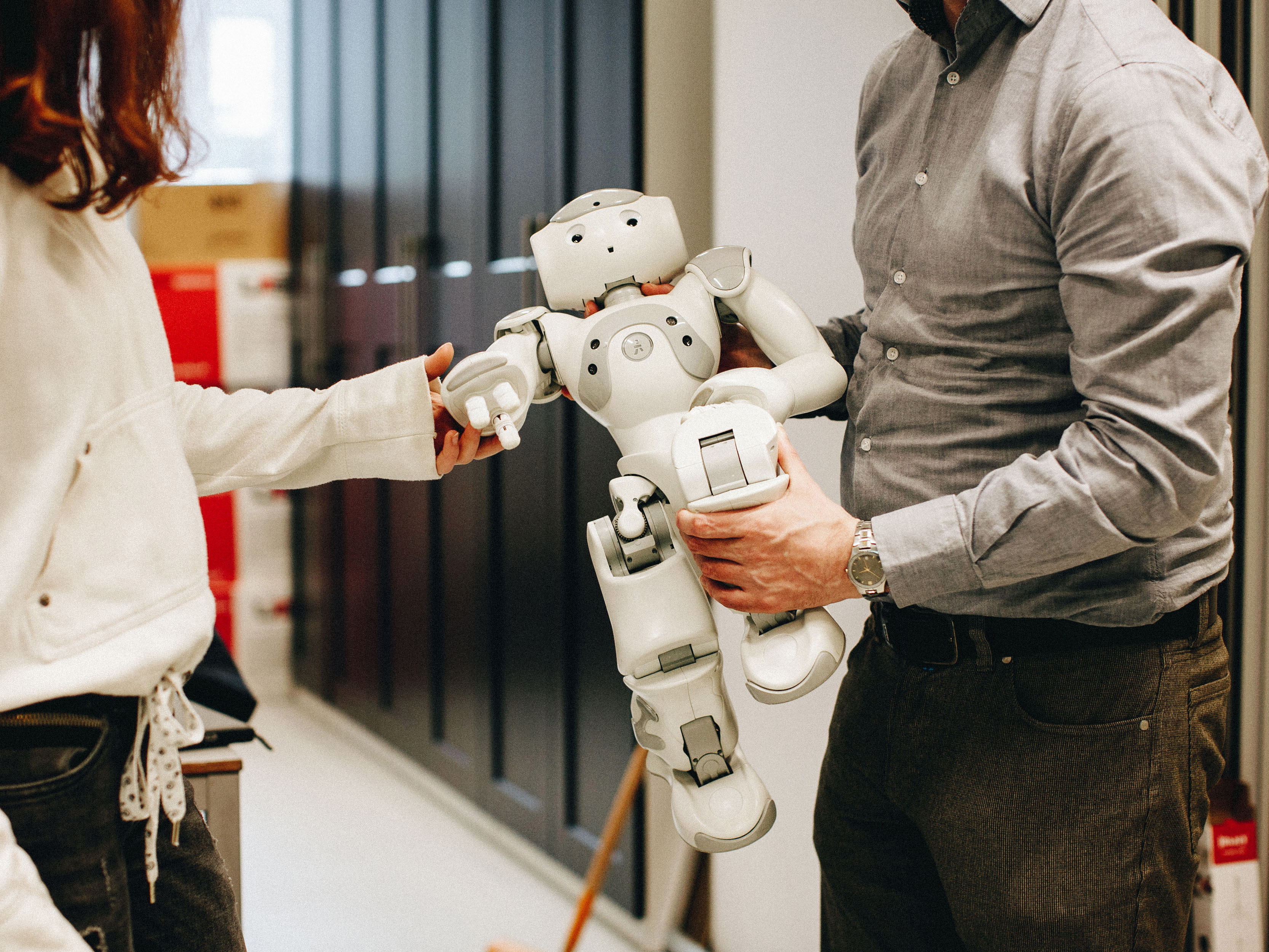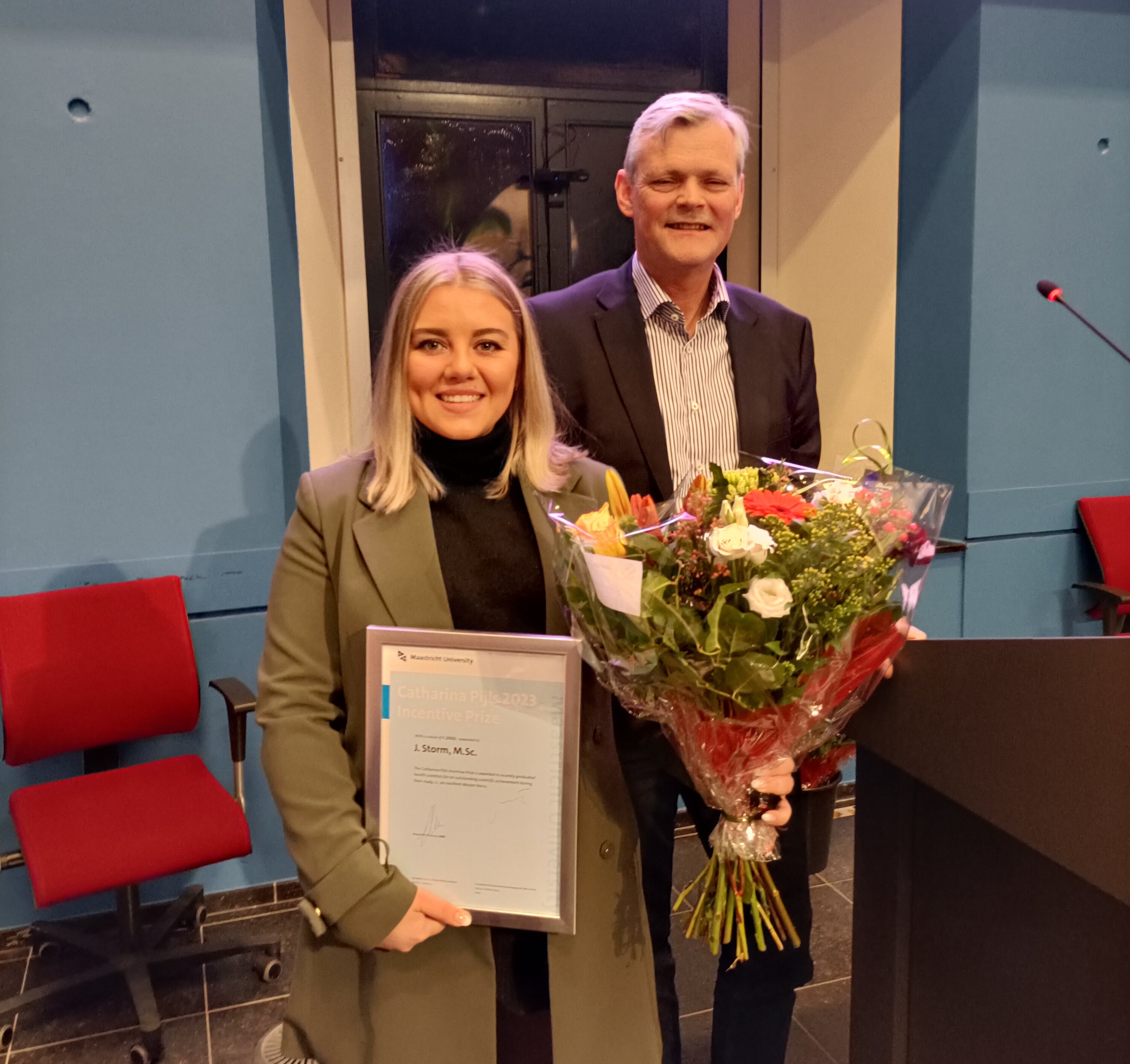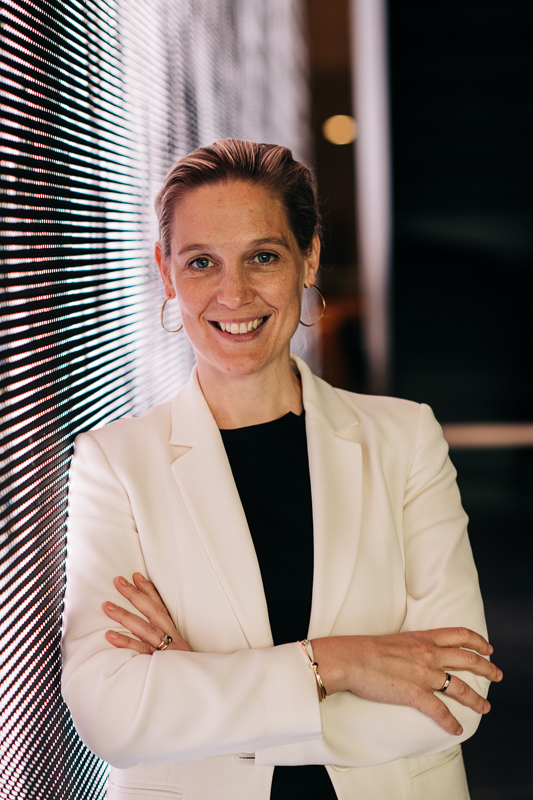“With our scale, we can really make a difference”
As a student of Business Administration at Maastricht University, Alberic Pater had no clear-cut career plans. The penny dropped when he was studying in Pretoria, South Africa. “Seeing the vast inequality and environmental pollution there was the trigger for me to focus on sustainability, to really make a positive impact in the business world.” After various positions at Triodos Bank and elsewhere, he is now helping to shape IKEA’s approach to sustainability and corporate social responsibility.
IKEA, sustainable? It’s not the first word that comes to mind when one thinks of the largest home-furnishing store in the world. “The company doesn’t have that image,” Alberic Pater is quick to acknowledge. “People still think we sell furniture and homewares with a short lifespan that soon end up on the rubbish heap. But that’s a distorted image. IKEA is investing massively in the transition to full circularity. By 2030 we want to sell only products made from renewable or recycled materials, and all the energy we use will come from renewable sources. And that’s not just PR or marketing spin.”
Sustainability
Are these lofty ambitions feasible? “All our stores are obliged to achieve the sustainability objectives; they’re definitely not voluntary. Nor is the goal of becoming fully circular. Procurement is centrally managed from the head office in Sweden, which increasingly requires the manufacturers and suppliers of our 10,000 different products to work with sustainable raw materials. Some 99% of the wood is already recycled or FSC certified, and 100% of our cotton has been ‘Better Cotton’ certified since 2015. Naturally, we still have a long way to go. It’s hard to find an alternative to petroleum foam, for example.”
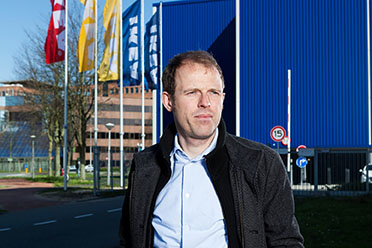
Alberic Pater studied Business Administration in Maastricht and Development Studies in Nijmegen. He has worked at Triodos, A.S. Watson Group, Nyenrode and IKEA Netherlands. Since May 2022 he has been Business Development Manager of the circular investments team at Ingka Investments, the investment arm of the Ingka Group.
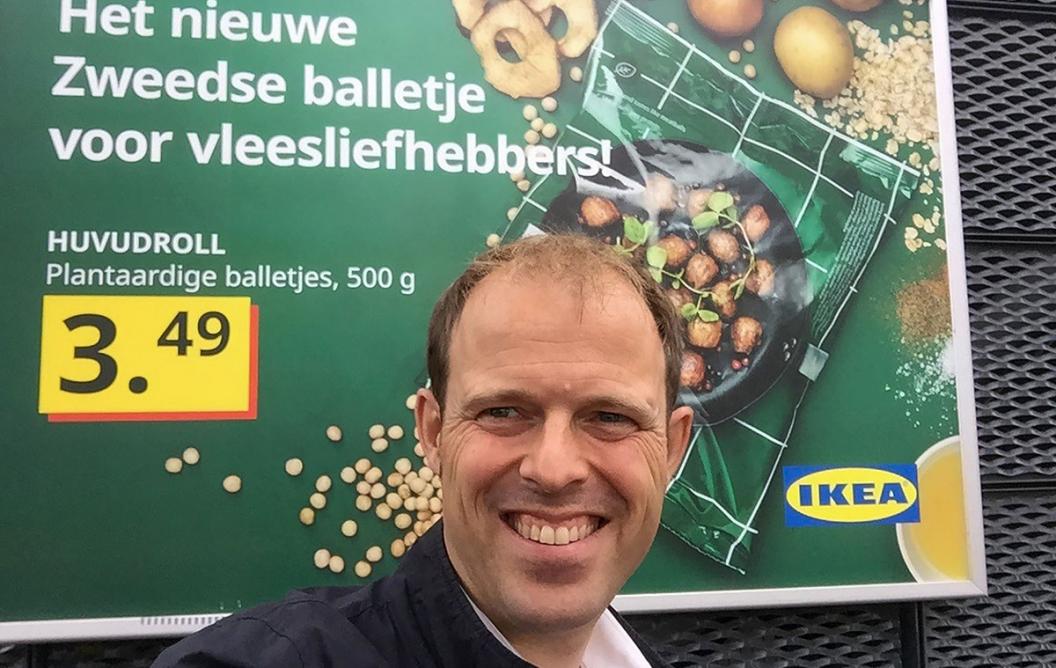
Alberic Pater in front of an IKEA billboard promoting vegan 'meat' balls.
RetourMatras
But it is possible. “Definitely! Nice example. Through Ingka Investments, we invested in the Dutch mattress recycler RetourMatras. Together with IKEA’s mattress producer, RetourMatras has developed a process using chemical recycling to turn foam from old mattresses back into a raw material for new foam. Soon we’ll be able to replace the foam in sofas and mattresses with recycled materials. It’s precisely large companies like IKEA that can make a difference. The stores in the Ingka Group, IKEA’s largest franchisee, welcome 650 million customers a year; last year’s annual turnover was €42 billion. With our scale, any improvement is bound to be substantial.”
Pilots
Pater joined Ingka Investments last spring; before that he spent five years at IKEA Netherlands as Sustainability Manager and subsequently as Business Development & Transformation Manager. “We started with sofa upholstery from used jeans. We also conducted a trial with furniture rental to maximise its lifespan; the internal processes at IKEA weren’t yet set up for this, but I still see opportunities. The younger generations are no longer so attached to property. They’re more aware of the future, more concerned with climate change and know that things need to change. The industry understands this too. At Ingka Investments, we’re investing in recycling companies and helping them to professionalise and become suppliers to IKEA. We’re linking different parts of the value chain with one another.”
"I chose Maastricht anyway for its Problem-Based Learning. Only after my stint in Pretoria did I really understand that companies have to make a difference and commit to a better world. "
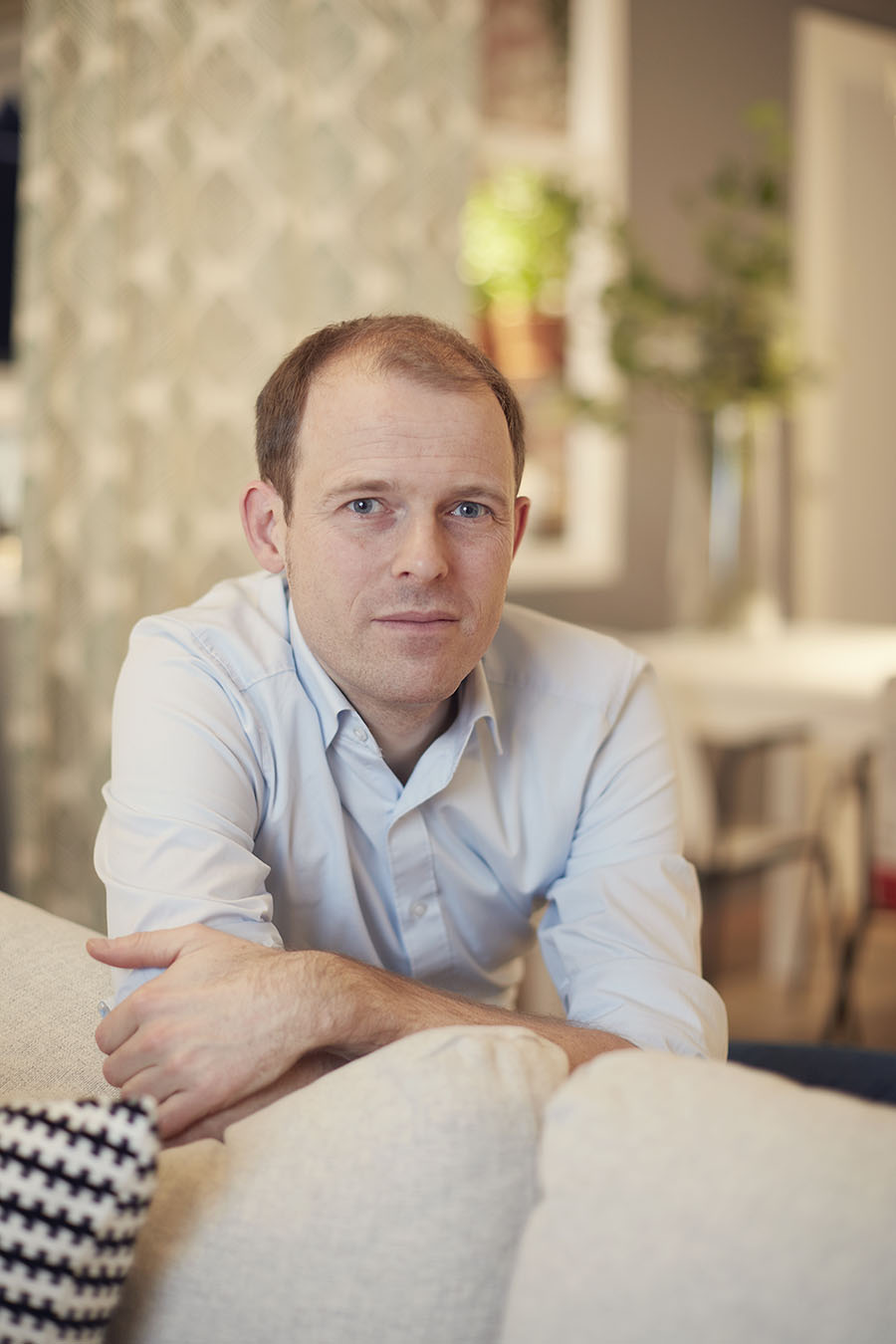
Pretoria
Pater aims, in his own words, to devote his working life to making the world a little better. “I’ve always been socially engaged, but in my day the Business Administration programme didn’t pay much attention to social issues. I chose Maastricht anyway for its Problem-Based Learning. Only after my stint in Pretoria did I really understand that companies have to make a difference and commit to a better world.”
After graduating, Pater spent another year studying psychology in Maastricht. “The programme fit well with my thesis, in which I studied how people in organisations make ethical decisions. Also, I just felt at home in Maastricht. Such a great city, we still spend a weekend there now and then.”
Triodos
The next step was the bachelor’s in Development Studies at Radboud University Nijmegen, combined with a part-time research job at the Centre for Sustainability at Nyenrode Business University. “I was offered a PhD position there, but I decided I want to do something more concrete.”
Five years of consultancy at Triodos followed, after which the Hong Kong-based A.S. Watson Group, the world’s largest drugstore chain, came knocking. “It’s the parent company of Kruidvat and Trekpleister, among other companies. I was in charge of developing a sustainability policy for the Benelux branch and ensuring it was implemented. Very concrete and different from the work for Triodos, where I mainly advised microcredit organisations in developing countries. I had the opportunity to make hundreds of stores more energy efficient, to steer them towards sustainable procurement. It wasn’t easy. At that time everyone wanted ‘something’ with sustainability. The focus was on costs and payback periods. We laid a solid foundation for corporate social responsibility. The first CSR annual report was presented at my farewell in 2017—I’m still proud of that.”
Impact
Pater joined IKEA shortly thereafter. “I wanted to make an impact, and that was possible at IKEA, as it is at Ingka Investments now. The will to become more sustainable is there. IKEA now has electrified home delivery in Amsterdam, which is scheduled to be rolled out across the country by 2025. More than 50,000 solar panels have been installed on the roofs, facades and parking spaces. And I’m personally now more involved in the road to circularity. The range is gradually becoming greener and more sustainable, and that with the consumer barely noticing. My belief is that in this space you have to be ahead of the consumer in making decisions.”
Jos Cortenraad (text) Alberic Pater (photo's)
"I’m personally now more involved in the road to circularity. The range is gradually becoming greener and more sustainable, and that with the consumer barely noticing. My belief is that in this space you have to be ahead of the consumer in making decisions."
Also read
-
Last year, Maastricht University further strengthened its profile in science and technology by launching a Bachelor in Computer Science. The response exceeded all expectations, with the first cohort of 300 students from all over the world starting the programme in September. “Computers and...
-
The healthcare sector is facing limited resources. Without smart innovation, quality of care is at risk for all patient groups. Jessica Storm, an alumna of the master’s programme Healthcare Policy Innovation and Management, researched the cost-effectiveness of fall prevention for one of the largest...
-
Were you absolutely cruising through your exams? Were you well prepared with plenty time to spare? Then Anique de Bruin’s work won’t change your life. But for everyone else, the Professor of Self-regulation in Higher Education has useful insights and tools. Together with a refugee scholar financed...
